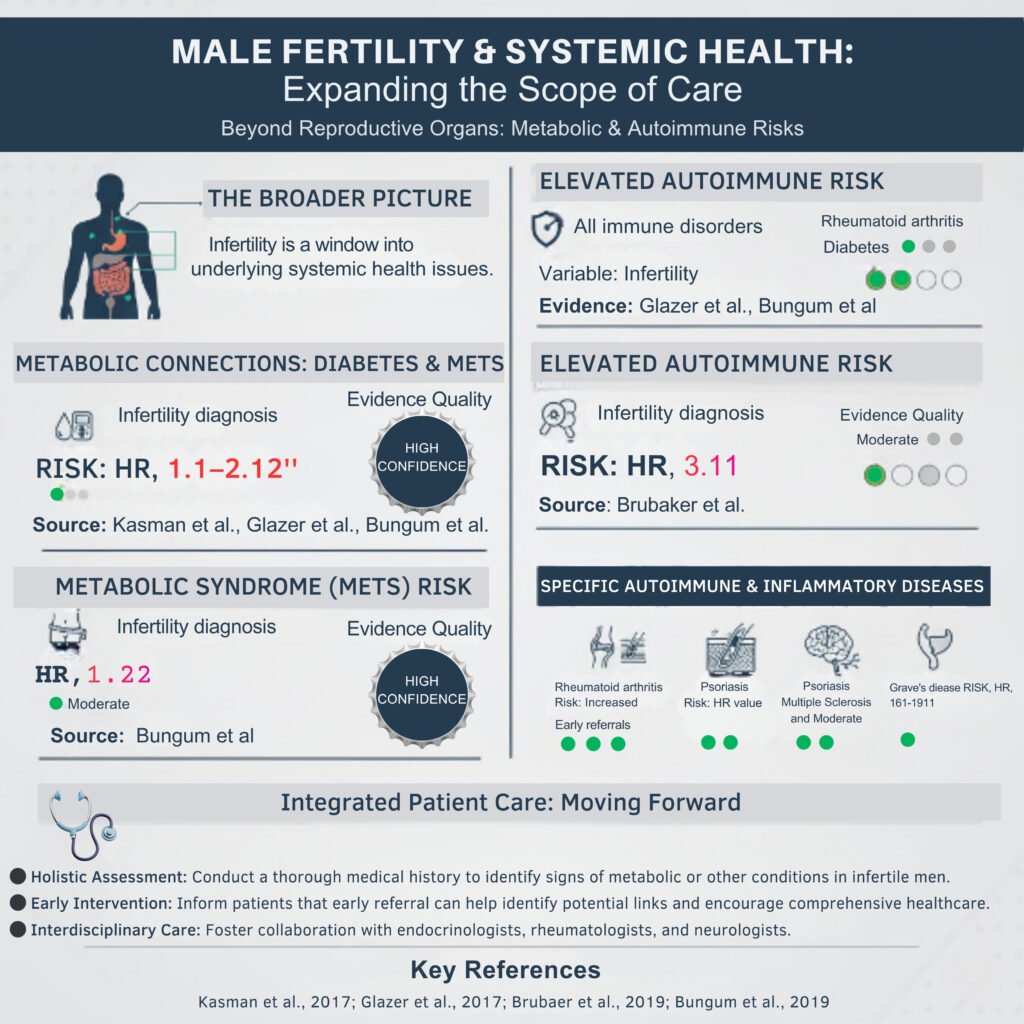Male Infertility: A Hidden Signal of Broader Health Risks
1. Infertility Beyond Reproduction
Up to 15% of couples struggle with infertility — and in half of these, the cause lies with the male partner. Recent studies show that male infertility isn’t just about sperm; it may signal deeper, systemic health risks.
2. What the Evidence Shows
Large cohort studies demonstrate that men with poor semen quality face:
- • 2× higher all-cause mortality
- • 1.4× increased risk of all-site cancers
- • Higher incidence of diabetes, cardiovascular, and kidney diseases
Conditions like obesity, diabetes, and autoimmune disorders (e.g., SLE) can disrupt sperm function through hormonal imbalance, oxidative stress, and chronic inflammation. Conversely, infertility itself may be an early warning of metabolic or oncologic disease.

3. The Biological Links
- • Shared genetics: Fertility-related genes often regulate other organs.
- • Hormonal pathways: Testosterone and gonadotropins affect metabolism and vascular health.
- • Common exposures: Lifestyle and environmental toxins damage both sperm and systemic health.
4. Clinical Implications At Krishna IVF, we advocate integrated men’s health screening:
- • Check metabolic and hormonal markers in every male infertility evaluation.
- • Address reversible factors such as obesity, diabetes, and lifestyle risks.
- • Coordinate care across endocrinology, cardiology, and reproductive medicine.
5. The Call Ahead
Recognizing male infertility as a public-health marker could help prevent chronic disease and improve lifespan.
“Fertility can be the earliest measurable biomarker of men’s health — not just their ability to conceive.” — Dr. G. A. Rama Raju
Call to Action:If you or someone you know is facing fertility issues, ask your clinician about a comprehensive health screening.
📍 Krishna IVF Clinic, Visakhapatnam
🌐 www.krishnaivf.com
